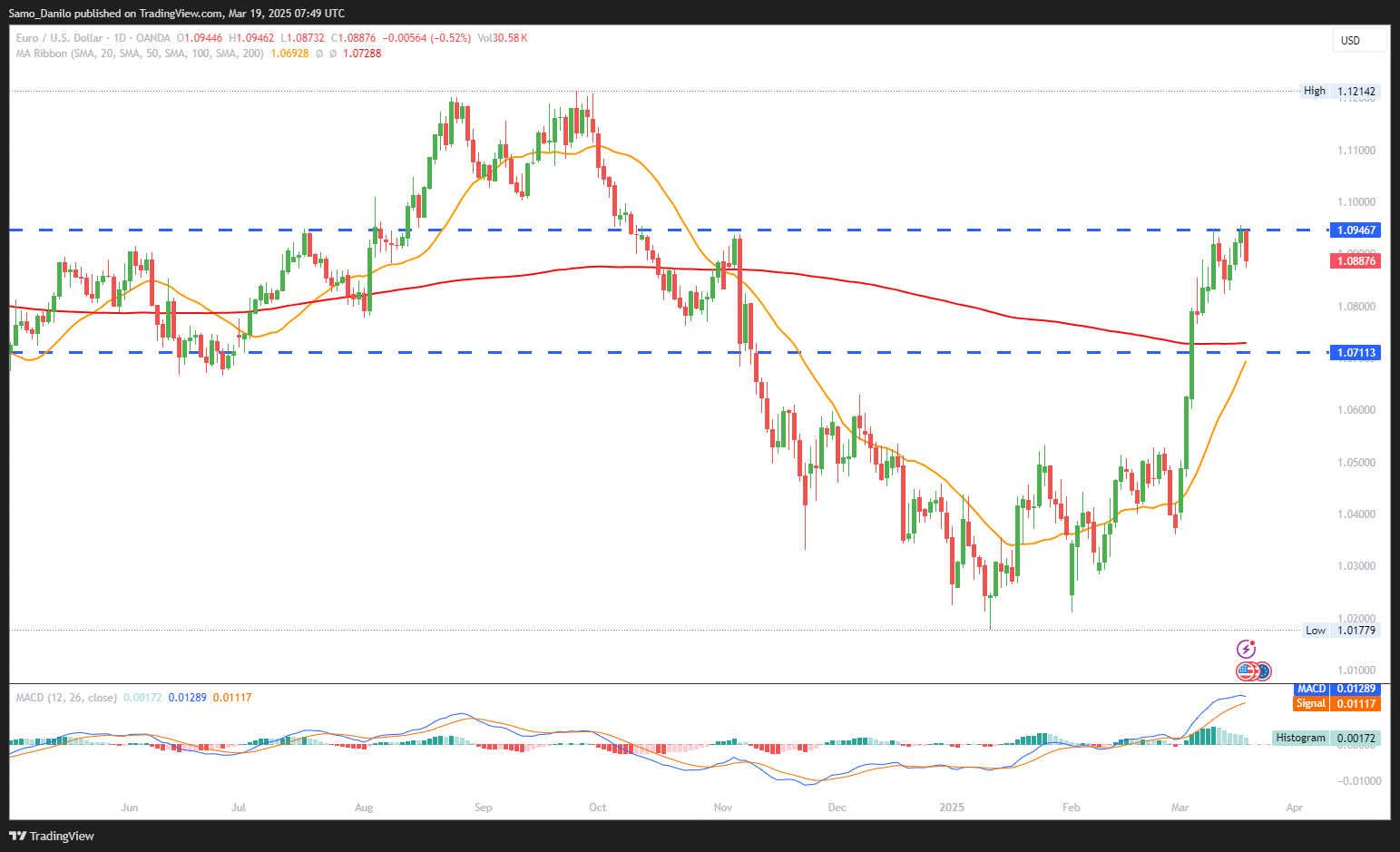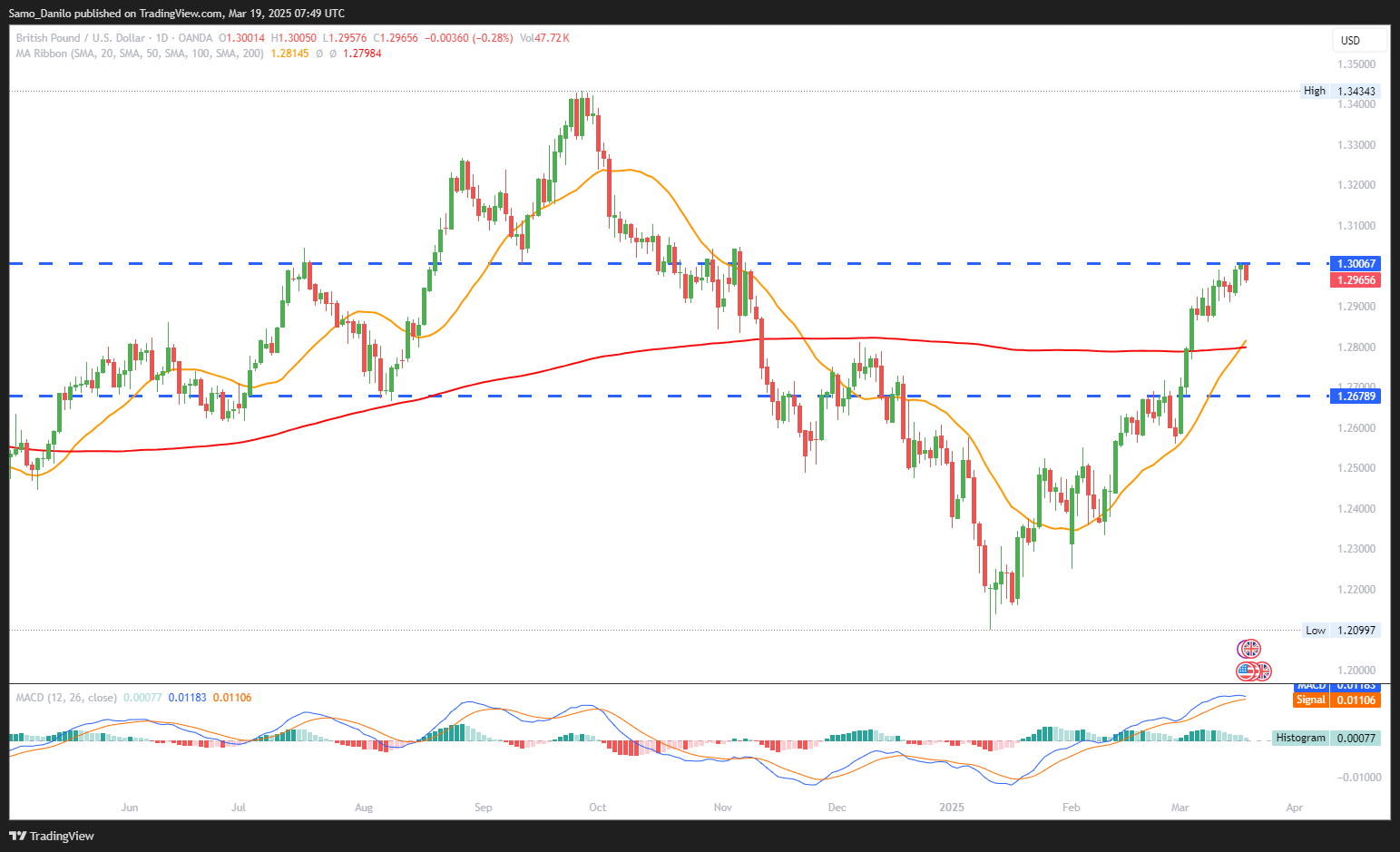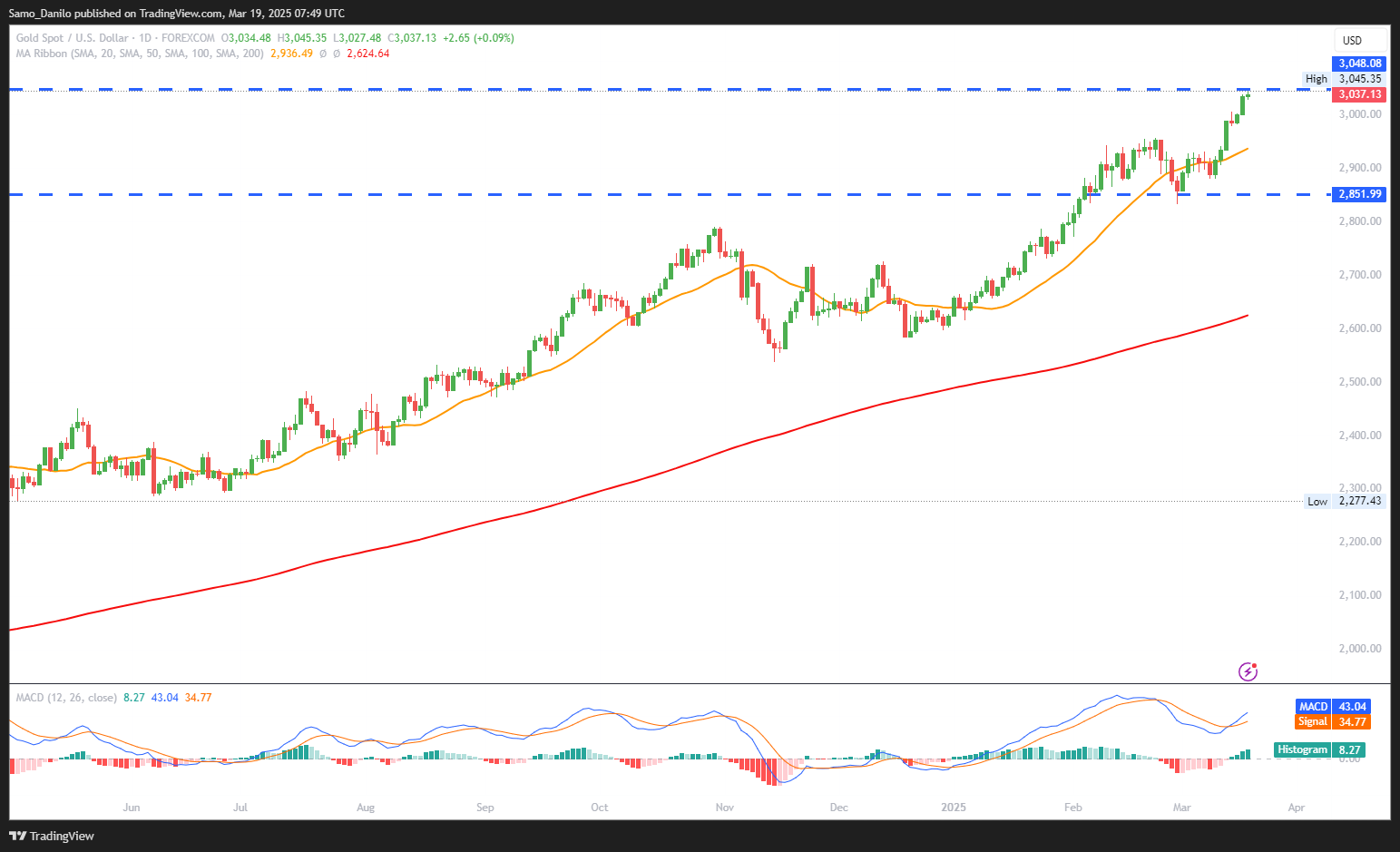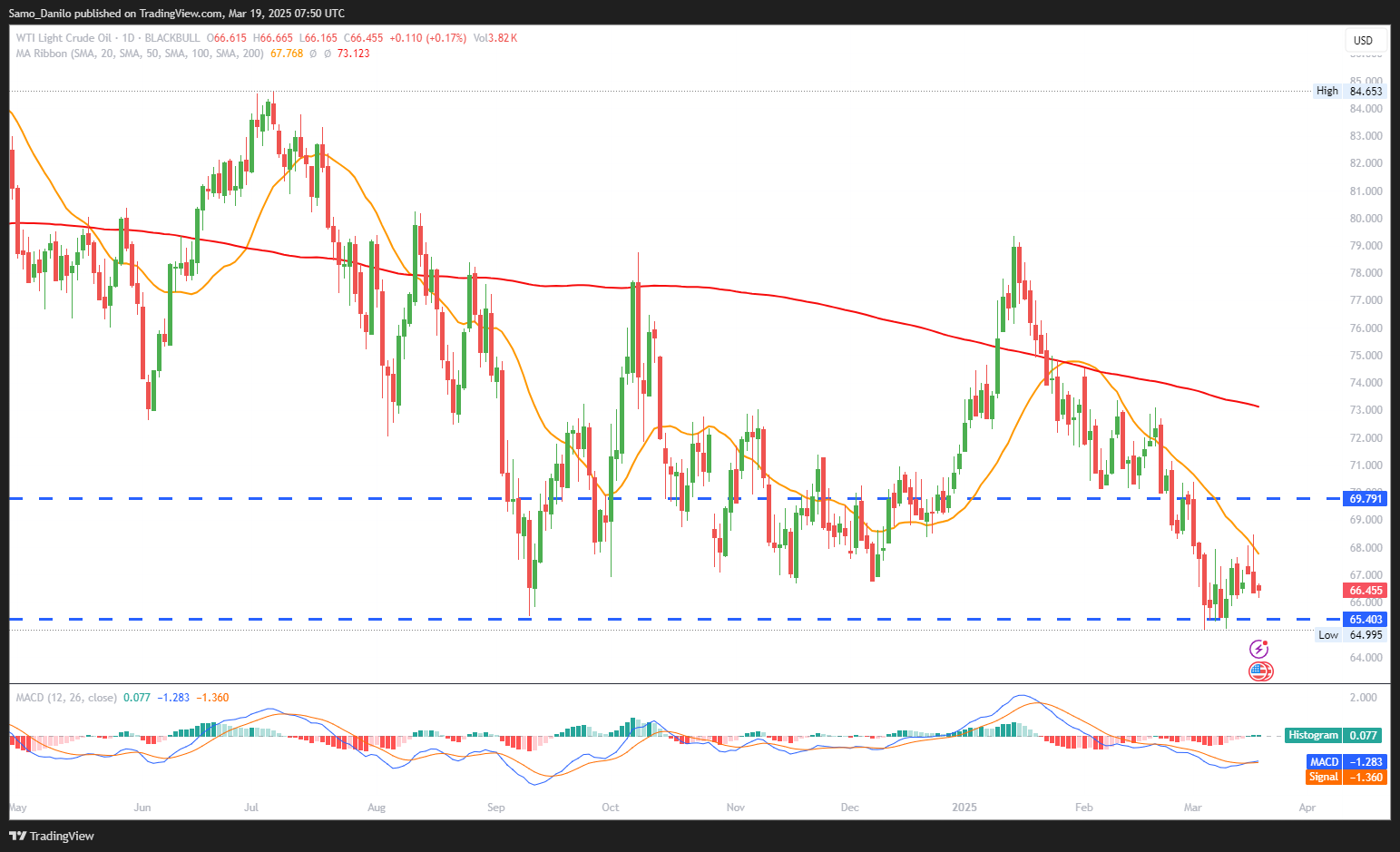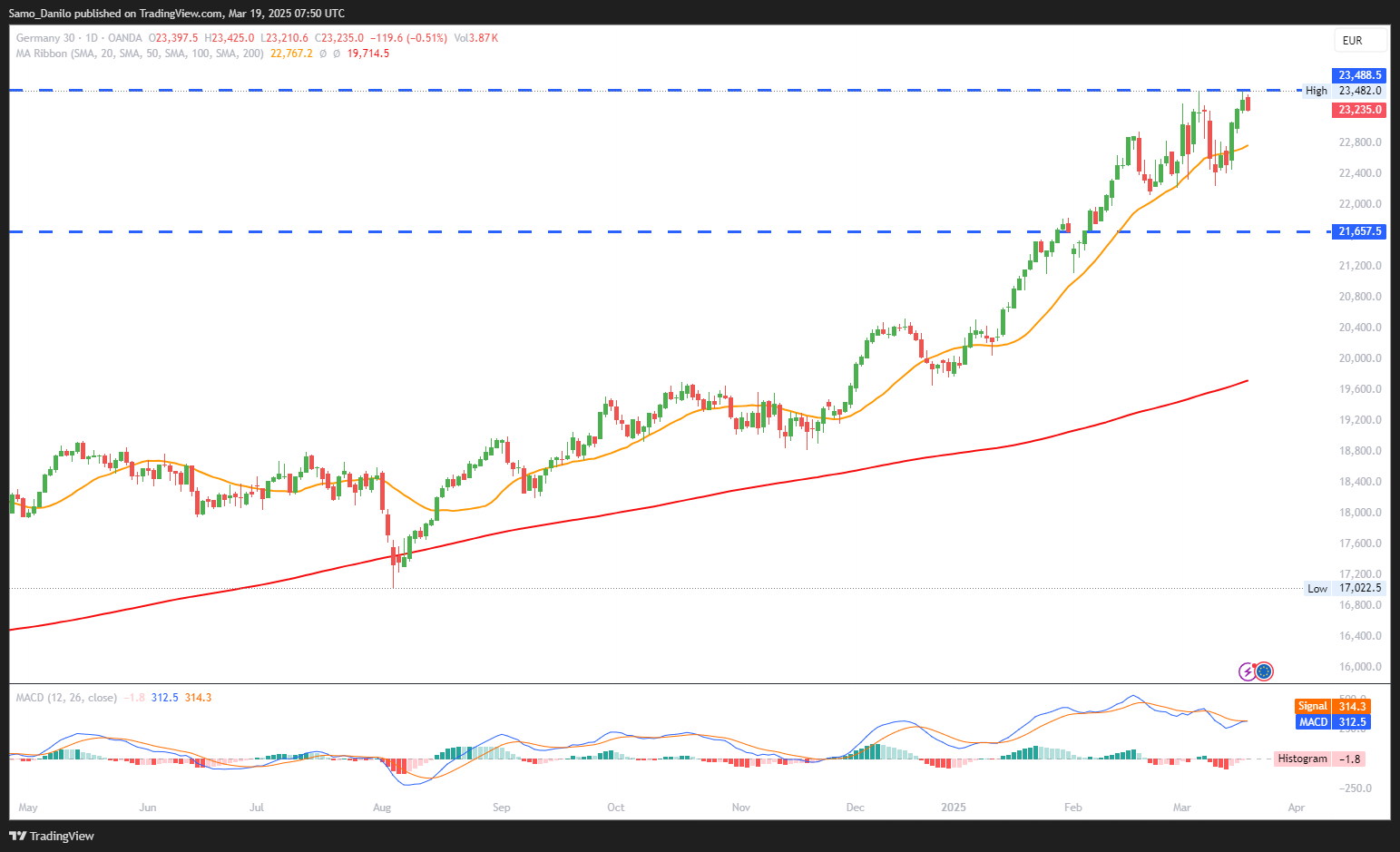EURUSD
- EUR/USD Price: The EUR/USD pair weakened to around 1.0885 during European trading on Wednesday, weighed down by a modest rebound in the US Dollar (USD).
- German Spending Surge: Germany’s parliament approved a significant spending increase on Tuesday, which could strengthen the Euro by boosting domestic growth and improving market sentiment.
- ECB Rate Cut: Traders now expect only two ECB rate cuts this year, likely in April and June, with rates not anticipated to fall below 2%. This reflects growing confidence in the Eurozone's economic resilience.
- US Retail Sales: Softer-than-expected US Retail Sales data raised concerns over slowing consumer demand, which could cap the Dollar’s recovery and lend support to the EUR/USD pair.
- Fed Rates: Markets anticipate that the US Federal Reserve will maintain interest rates at its March meeting on Wednesday, citing persistent inflation risks and economic uncertainty.
Closing statement: EUR/USD remains under pressure from the stronger Dollar, but Germany’s spending plans and adjusted ECB rate expectations could provide support in the near term. All eyes are now on the Fed's decision.
GBPUSD
- GBP/USD Price: The GBP/USD pair edged lower to 1.2960 during European trading on Wednesday, retreating after two consecutive days of gains as a stronger US Dollar weighed on the pair amid rising trade and geopolitical tensions.
- BoE Rates: Market expectations point to the Bank of England (BoE) maintaining its policy rate at Thursday's meeting, supporting the Pound despite broader market uncertainty.
- BoE Policy Signals: BoE MPC members Catherine Mann and Swati Dhingra are expected to push for rate cuts, with Mann favoring a 50 bps reduction while the majority may prefer a 25 bps cut—signaling a potential policy split.
- US Data: US Retail Sales rose 0.2% MoM in February (vs. -1.2% in January), while Industrial Production grew 0.7% MoM, beating forecasts of 0.2%—strengthening the Dollar and pressuring the Pound.
- Geopolitical Developments: Heightened trade and geopolitical uncertainty continue to drive safe-haven flows into the Dollar, weighing on risk-sensitive currencies like the Pound.
Closing statement: GBP/USD faces downward pressure from a stronger Dollar and geopolitical risk, but BoE rate expectations could provide near-term support if the central bank holds its ground.
XAUUSD
- XAU/USD Price: Gold price (XAU/USD) surged to a new all-time high near $3,040 early Wednesday, supported by increased safe-haven demand amid geopolitical tensions and market uncertainty.
- Fed Rates: The Federal Reserve is set to announce its decision today, with markets expecting the central bank to keep the policy rate at 4.25%–4.50%. Focus will shift to the updated economic outlook and Powell’s guidance for future policy moves.
- Truce Possibility: On Tuesday, Trump and Putin agreed to an immediate halt on strikes targeting energy infrastructure. However, Putin declined to endorse a broader ceasefire with Ukraine, adding to geopolitical uncertainty.
- Middle East Tensions: Israeli airstrikes on Hamas targets in Gaza killed over 400 people after Hamas rejected ceasefire extension proposals. The heightened conflict is boosting demand for safe-haven assets like gold.
- Fed’s Economic Projections: Investors will closely monitor the Fed’s updated economic projections and Powell’s comments, which could influence gold’s next directional move.
Closing statement: Gold remains well-supported by geopolitical tensions and expectations for steady Fed policy, with further upside likely if risk sentiment deteriorates.
CRUDE OIL
- Crude Oil Price: West Texas Intermediate (WTI) Oil remains under pressure for the second straight session, trading near $66.40 per barrel during European hours on Wednesday, amid easing geopolitical tensions and mixed demand signals.
- Ceasefire Skepticism: Ukrainian President Volodymyr Zelensky expressed doubts about the limited ceasefire agreed upon by Trump and Putin to halt strikes on energy infrastructure. Skepticism over Russia’s long-term commitment weighs on market sentiment.
- Russian Output: Russia’s oil production has declined due to sanctions, but a potential easing of these sanctions following a ceasefire could increase global supply and add downward pressure on oil prices.
- Middle East Tensions: Trump reiterated plans for military action against Yemen's Houthis and warned Iran against further disruptions to Red Sea shipping, maintaining geopolitical risk in the background.
- US Crude Inventory: The American Petroleum Institute (API) reported a rise of 4.593 million barrels in US crude stockpiles for the week ending March 14, signaling weaker demand and capping potential price recovery.
Closing statement: WTI remains vulnerable to increased supply from Russia and mixed US demand signals, with geopolitical tensions providing limited support.
DAX
- DAX Price: Germany’s lower house passed a historic fiscal reform bill, driving the DAX to a record high. The bill includes a €500 billion infrastructure fund and a €100 billion climate and economic transformation fund, signaling strong government commitment to economic growth.
- Stocks News: Progress on debt brake reforms and fiscal expansion boosted key sectors. Rheinmetall AG surged 5.67% on expectations of increased defense spending, while banking stocks also benefited from improved growth prospects.
- Eurozone Trade: The Eurozone’s trade surplus dropped from €15.4 billion in December to €1 billion in January, as exports rose 3% YoY while imports increased 7.6% YoY. US tariff threats on EU goods remain a downside risk.
- Economic Sentiment: The ZEW Indicator of Economic Sentiment for Germany climbed to 51.6 in March, up 25.6 points from February, reflecting growing confidence in economic recovery and expansion.
- US Housing Data: US Housing Starts rebounded 11.2% MoM in February, recovering from an 11.5% decline in January. However, Building Permits fell 1.2% in February, signaling potential weakness in future housing demand.
Closing statement: DAX strength is underpinned by fiscal stimulus and improved economic sentiment, though trade tensions and weak US housing demand could cap further gains.
